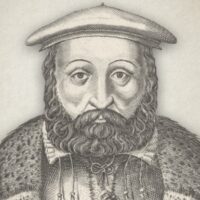
Chapter 26: Its Relation to the Ungodly – Part 5
Position 9.—Notwithstanding God’s predestination is most certain and unalterable, so that no elect person can perish nor any reprobate be saved, yet it does not follow from thence that all precepts, reproofs and exhortations on the part of God, or prayers on the part of man, are useless, vain and insignificant.
(1) These are not useless with regard to the elect, for they are necessary means of bringing them to the knowledge of the truth at first, afterwards of stirring up their pure minds by way of remembrance, and of edifying and establishing them in faith, love and holiness. Hence that of St. Augustine:[1] “The commandment will tell thee, O man, what thou oughtest to have, reproof will show thee wherein thou art wanting, and praying will teach thee from whom thou must receive the supplies which thou wantest.”
(2) Nor are these vain with regard to the reprobate, for precept, reproof and exhortation may, if duly attended to, be a means of making them careful to adjust their moral, external conduct according to the rules of decency, justice and regularity, and thereby prevent much inconvenience to themselves and injury to society. And as for prayer, it is the duty of all without exception. Every created being (whether elect or reprobate matters not as to this point) is, as such, dependent on the Creator for all things, and, if dependent, ought to have recourse to Him, both in a way of supplication and thanksgiving.
(3) But to come closer still. That absolute predestination does not set aside, nor render superfluous the use of preaching, exhortation, etc., we prove from the examples of Christ Himself and His apostles, who all taught and insisted upon the article of predestination, and yet took every opportunity of preaching to sinners and enforced their ministry with proper rebukes, invitations and exhortations as occasion required. Though they showed unanswerably that salvation is the free gift of God and lies entirely at His sovereign disposal, that men can of themselves do nothing spiritually good, and that it is God who of His own pleasure works in them both to will and to do, yet they did not neglect to address their auditors as beings possessed of reason and conscience, nor omitted to remind them of their duties as such; but showed them their sin and danger by nature, and laid before them the appointed way and method of salvation as exhibited in the Gospel.
Our Saviour Himself expressly, and in terminis, assures us that no man can come to Him except the Father draw him, and yet He says, “Come unto Me, all ye that labour,” etc. St. Peter told the Jews that they had fulfilled ”the determinate counsel and foreknowledge of God” in putting the Messiah to death (Acts 2), and yet sharply rebukes them for it. St. Paul declares, “It is not of him that willeth nor of him that runneth,” and yet exhorts the Corinthians so to run as to obtain the prize. He assures us that “we know not what to pray for as we ought” (Rom. 8), and yet directs us to “pray without ceasing” (1 Thess. 5). He avers that the foundation or decree of the Lord standeth sure, and yet cautions him who “thinks he stands, to take heed lest he fall” (1 Tim. 2). St. James, in like manner, says that “every good and perfect gift cometh down from above,” and yet exhorts those who want wisdom to ask it of God. So, then, all these being means whereby the elect are frequently enlightened into the knowledge of Christ, and by which they are, after they have believed through grace, built up in Him, and are means of their perseverance in grace to the end; these are so far from being vain and insignificant that they are highly useful and necessary, and answer many valuable and important ends, without in the least shaking the doctrine of predestination in particular or the analogy of faith in general. Thus St. Augustine:[2] “We must preach, we must reprove, we must pray, because they to whom grace is given will hear and act accordingly, though they to whom grace is not given will do neither.”
——————————-
[1] De Corrept. et Grat., chap. 8.
[2] De Bon. Persev., cap. 14.
Jerome Zanchius (1516-1590) was an Italian pastor, theologian, writer and reformer during the Protestant Reformation. After the death of Calvin, Zanchius’ influence filled the void, which was copiously met by a large written ministry. Among his most popular works are, “Confession Of The Christian Religion”, “Observation On The Divine Attributes” and “The Doctrine Of Absolute Predestination”.
Jerome Zanchius on Absolute Predestination (Complete)




